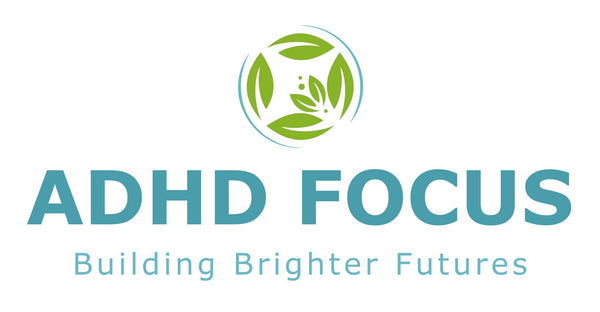
How ADHD Disrupts Working Memory — And Why ADHD Children Seem Forgetful
Share
Many children with ADHD (Attention-Deficit/Hyperactivity Disorder) seem to forget instructions, lose track of tasks, or misplace belongings far more often than their peers. This isn’t simply carelessness; it’s often linked to difficulties with working memory, the brain’s ability to hold and manage information for short periods of time.
This article explores what working memory is, how ADHD affects this crucial brain function, and why it leads to everyday forgetfulness. It will also cover research-backed strategies, and professional support options that can help improve focus, organisation, and self-regulation in children with ADHD.

What Is Working Memory?
Think of working memory as the brain’s short-term storage. It’s like a mental “sticky note” that holds small bits of information for a short time so you can use it. For example, when someone says, “Go to your room, grab your shoes, and put them by the door,” your working memory keeps those steps in mind until you finish the task.
For children with ADHD (Attention-Deficit/Hyperactivity Disorder), this mental sticky note doesn’t always work well. They might remember “Go to your room”—but forget the rest of the instructions by the time they get there.
How ADHD Disrupts Working Memory
Research shows that most children with ADHD have weaker working memory, especially the part that organises and manages information (called the “central executive”).
This happens because:
- The prefrontal cortex (the brain area that controls planning and memory) doesn’t work as efficiently.
- The brain has lower levels of dopamine, a chemical that helps with focus and motivation.
So, even if the child is paying attention, their brain may not “hold” the information long enough to act on it.
What Does This Look Like in Daily Life?
If a child has ADHD, you might notice:
- They forget instructions moments after hearing them.
- They lose track of multi-step tasks, like “Do your math, then pack your bag.”
- They misplace everyday things—homework, lunchboxes, clothes.
- They start chores or homework but don’t finish.
- They seem easily distracted or “scatterbrained.”
This forgetfulness isn’t about being lazy or careless. It’s a real brain-based difficulty that makes it harder for them to remember and organise information. Children with ADHD are often accused of “not trying” or “not listening.” But in reality, their brain struggles to hold on to information, even if they want to remember.
When we understand this, it’s easier to respond with support instead of frustration.
What Science Tells Us
Studies have found that up to 80% of children with ADHD have working memory challenges. This makes it harder for them to:
- Stay organised in school.
- Follow conversations without losing track.
- Manage time and plan ahead.
A well-known review of research (Martinussen et al., 2005) showed that these memory problems are one of the most common reasons kids with ADHD fall behind in schoolwork and daily routines.

How You Can Help The Child
The good news is there are many ways to support a child with ADHD working memory difficulties. Here are proven strategies that can make a big difference:
1. Create Routines and Structure
- Keep morning, homework, and bedtime routines the same every day.
- Use visual schedules with pictures or written steps so the child can see what to do next.
2. Give One Instruction at a Time
Instead of saying, “Go brush your teeth, pack your bag, and feed the dog,” break it down:
- “First, go brush your teeth.”
- When that’s done, give the next step.
3. Use Visual and External Reminders
- Sticky notes, charts, or color-coded folders can help remind them.
- Timers and alarms can keep them on track.
4. Repeat and Reinforce
Ask the child to repeat instructions back to you. This helps the brain “lock in” the information.
5. Consider Natural Remedies for Focus & Calm
Some parents prefer starting with gentle, natural support alongside behavioral strategies. Options include:
- BrightSpark – a homeopathic remedy designed to help improve hyperactivity and balance mood in children with ADHD-like symptoms.
- Focus & Calm – a herbal remedy that supports concentration and mental clarity.
These natural options can help create a calmer state of mind, making it easier for children to remember and follow through on tasks.
6. Professional Support if Needed
Getting help from professionals can give you tailored strategies for the child’s needs.
- Educational psychologists can assess memory skills.
- Occupational therapists who focus on memory and organisation skills.
Quick Tips You Can Start Today
- Simplify instructions – one step at a time.
- Make checklists – morning and homework routines work best with visual reminders.
- Use a “launch pad” – a single spot where the child keeps their school bag, shoes, and lunchbox.
- Practice patience – remember, this is how their brain works.
- Celebrate small wins – positive reinforcement builds confidence.
Children with ADHD aren’t forgetful on purpose. Their brains simply process and store information differently. By understanding how ADHD affects working memory, you can create a supportive environment that helps the child thrive.
With simple routines, visual aids, natural remedies like Focus & Calm or BrightSpark, and professional guidance, forgetfulness doesn’t have to hold them back.
Related Products
- BrightSpark - Homeopathic remedy helps balance restlessness, hyperactivity and impulsivity.
- Focus & Calm - Herbal remedy improves concentration and brain functioning.
Related Articles
- Are ADHD Children Neurodivergent?
- The ADHD Gut-Brain Connection: Why Digestive Health Matters
- ADHD vs. Normal Childhood Behaviour: The Differences
If you have any question, please contact us or leave a comment below for FREE health advice. We always love hearing from you!


1 comment
Autistic child
How can ki help him? He is 5years.